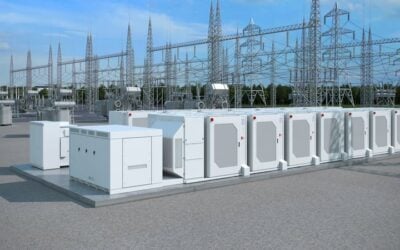Bosch claims it has developed an energy management system for optimising electrical and thermal energy consumption from solar power systems, which the company will launch at this year’s Intersolar exhibition and conference.
Bosch refers to the new product as an “intelligent networked solution” which it will launch through subsidiary Bosch Power Tec. It can combine the use of photovoltaic arrays with a heat pump, with the whole network controlled by a Bosch e.Control control unit. The solution is aimed at residential users.
Enjoy 12 months of exclusive analysis
- Regular insight and analysis of the industry’s biggest developments
- In-depth interviews with the industry’s leading figures
- Annual digital subscription to the PV Tech Power journal
- Discounts on Solar Media’s portfolio of events, in-person and virtual
According to Bosch this means that if there is sufficient solar irradiation, electricity generated by the PV system can drive the heat pump, while the system can “considerably increase” how much on-site generated power can be used. The systems can also be combined with energy storage as a further option to maximise self-consumption.
The e.Control unit connects to the householder’s electricity meter, monitoring energy use around the home. Bosch claims the system prioritises the energy needs of whoever is occupying the house and running appliances, after which it can heat up the household’s hot water tank via the heat pump. The company says this means the amount of solar-generated electricity sold back to the grid at low tariffs is minimised, with as much power as possible used on site. Bosch also claims this means the burden on the public grid network is reduced.
Combining the ‘network solution’ with Bosch’s own hybrid solar storage product BPT-S 5 means that the heat pump can be run from electricity stored in the BPT-S 5’s lithium-ion battery. By running excess power into the household hot water storage tank, the overall energy storage capacity of the system can be increased.
At the beginning of March, Bosch announced that Bosch Power Tec had joined research project Sol-ion+, along with three other private companies and four research institutions. The project is sponsored by Germany's Federal Ministry for the Environment, Nature Conservation, Building and Nuclear Safety. The first phase of Sol-ion+ will run until the beginning of 2018 and will be concerned with developing storage systems suitable for the consumer sector.
Bosch claims that using a BPT-S 5 Hybrid storage system can increase the self-reliance of a normal four person household by 75%, even without use of a heat pump. This figure could rise to 100% during some portions of summer months.
Bosch claims that using a BPT-S 5 Hybrid storage system can increase the self-reliance of a normal four person household by 75%, even without use of a heat pump. Image: Bosch.






